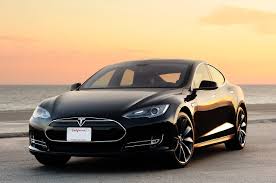Yesterday, the Washington Department of Ecology delivered some bad news by way of good.
The good news was that this year, 100 percent of the state met federal air quality standards. Compare that to 1995, when nearly half the state’s population was breathing air not up to federal standards. That’s impressive, considering that in those two decades, the state has added nearly 3 million people.
But the bad news is that those standards are about to get far more stringent with the expected announcement of new smog regulations passed down by the Environmental Protection Agency, and that the Puget Sound region could well find itself in violation of those new standards. If so, Seattle’s transportation system will have a whole new problem to deal with: Not only will traffic suck, but it might suddenly be in violation of federal law, since automobile traffic is a major contributor to smog.
There’s little doubt that public transportation will need to be the biggest part of any attempt to further reduce car-related air pollution in the city—big public transportation, like a subway to Ballard and lightrail to Tacoma. But personal vehicles will continue to, well, drive transportation across the region, leading people at the Washington Department of Ecology to investigate how Washington can get more electric vehicles on the road.
Given the preponderance of Priuses on Seattle roads (Prius drivers unite!), Washington state is surprisingly lacking in electric vehicle choices. According to Camille St. Onge, a spokeswoman for the Department of Ecology, 35 percent of all zero-emission vehicles sold in the United States are not available in Washington. “Our consumers don’t have the opportunity to purchase those less polluting cars,” she lamented Thursday. Washington isn’t the first state to reckon with a lack of electric car offerings. In California, state law requires each automaker to deliver a certain number of zero-emission vehicles, based on how many total vehicles that company sells, and nine other states have followed suit.
What that’s done, Onge says, is “spurring innovation” in the auto industry.
Ecology would like to see state policy that requires 6 percent of cars for sale in Washington state be zero-emission by 2020, be they electric or hydrogen fueled. The department estimates that this kind of law would reduce green-house gas emissions from cars by 10 percent by 2035. The department is now lobbying lawmakers to get Washington state to adopt the California rule as its own.
Car dealers and makers are, understandably, resistant to the idea. And while they obviously have a self interest at stake, they raise some good points. A key one is that despite the lack of choices, Washington as a percentage of cars bought has a better rate of zero-emission vehicles than all but one of the states (California) that require dealers to put these cars on the lots (Washington is fourth in the country for zero-emission vehicles at 1.28 percent.) Of the three states with better rates, California is the only one with a mandate.
Those arguments proved persuasive to the legislature this year, as the bill only passed one House committee before it was tabled (In addition to their well reasoned testimony, the Washington State Auto Dealers Association has a lot of friends in Olympia, having contributed $1.3 million to candidates in the last 22 years, according to Follow The Money.)
However, in lobbying against the bill, the automakers and sellers spelled out why a mandate might make environmental sense in the long term. First, they insisted that the law would represent a real mandate on automakers to make more zero-emissions vehicles in their plants–“the only government mandate that requires a company to sell a specific product, to make a specific kind of vehicle,” one lobbyist told the House Committee on Environment in February. The lobbyists also warned that by passing a mandate, the state of Washington would be committing itself to building infrastructure to allow people to drive hydrogen vehicles, cars that are largely only available in California and Oregon since those states have committed to such infrastructure. No doubt persuasive arguments to the free-market inclined and those worried about the state budget, but from a clean air perspective, both those developments might be welcome ones.
Onge says the department will continue to push for a zero-emission vehicle standard in Washington, though hopes of anything passing this session are dim. Next year Ecology may have a lot more leverage to work with: the risk of federal fines in Washington’s air doesn’t get a lot cleaner.








